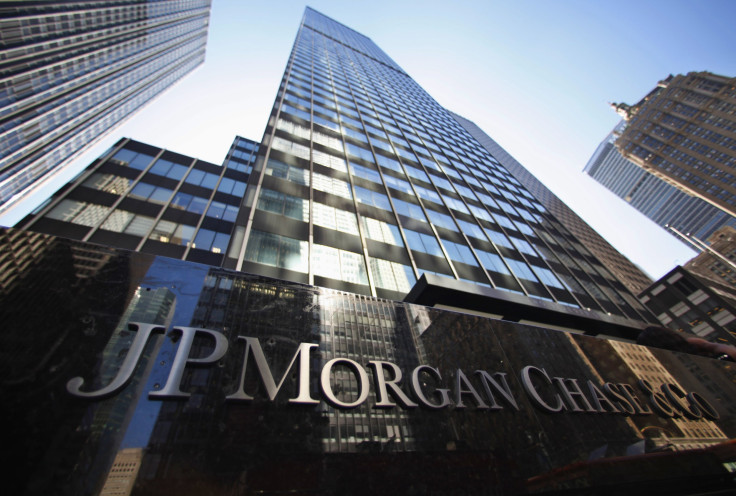Major Banks Slapped With $5.7 Billion In Fines, Unprecedented Criminal Charges Over Foreign Exchange Manipulation

A handful of the world’s largest banks will pay a combined $5.7 billion and plead guilty to criminal antitrust violations in connection with a global currency manipulation scheme, reviving lingering questions over the integrity of major financial institutions.
In a regulatory coup, the Justice Department extracted an unprecedented string of guilty pleas from four of the banks involved, including Citigroup and JPMorgan Chase & Co. The charges, announced Wednesday, mark the first time in decades that the parent companies of major U.S. banks have pleaded guilty to felony misconduct. U.K. banks Barclays and Royal Bank of Scotland also handed in guilty pleas.
Over the course of more than five years, traders at the banks colluded to rig the $5.3 trillion-a-day currency benchmarks that sit at the very center of the global economy, directly impacting some $3.6 trillion in savings held by pensions funds, governments and asset managers.
The fines to the Department of Justice and other regulators put the total tab from foreign-exchange misdeeds at more than $10 billion. Last year a half-dozen lenders -- including JPMorgan, Citigroup and RBS -- handed over a combined $4.3 billion to regulators in Switzerland, the U.S. and the U.K.
Barclays, which unexpectedly pulled out of the previous settlements, paid the largest fine in this round, at $2.4 billion. The bank "engaged in a brazen ‘heads I win, tails you lose’ scheme to rip off their clients," said Benjamin Lawsky, New York's top financial regulator, in a statement. The bank will fire eight staff involved in the misconduct.
UBS, which blew the whistle on misconduct in the currency markets, dodged criminal charges and settled with several regulators for $545 million.
But the Justice Department tore up a 2012 non-prosecution agreement with the Swiss bank over its involvement in manipulating Libor, a global interest-rate benchmark. UBS will face a wire fraud charge and a three-year probation for its role in the Libor scandal.
According to the settlements, traders at the banks met regularly in chat rooms during the few minutes before global currency benchmarks were set to swap confidential information, including details of their customers’ orders. Using names like “The Cartel” and “The Mafia,” the groups colluded to place last-minute trades that would nudge rates in ways profitable to them.
In one excerpt shared by New York's Department of Financial Services, a Barclays employee wrote, "if you aint cheating, you aint trying."
Attorney-General Loretta Lynch, justifying the charges against the banks' parent companies, said the individuals implicated were "traders who were very senior, who were acting on behalf of the senior banks, whose behavior profited the parent-level banks."
The manipulative behavior, which went unchecked for years, casts doubt on the ability of international regulatory bodies and banking institutions to police traders active in the world’s largest markets. Financial institutions have paid fines and penalties totalling more than $100 billion since the financial crisis, according to data from the Financial Times.
Particularly galling to regulators is the fact that foreign exchange manipulation occurred even as investigators were probing banks over the Libor scandal, which saw some of the same firms rigging a globally important interest-rate benchmark.
“The parent companies are on notice that if there is other criminal activity detected by the banks it must be reported,” Lynch said in a press conference.
In the coming weeks, the banks will learn whether separate financial regulators will waive stiff automatic penalties that come with guilty pleas. Lawyers have reportedly lobbied the SEC to exempt their clients from bans relating to issuing securities and making financial statements, a back-and-forth that delayed the DOJ’s settlement announcement.
“We certainly worked closely with our regulatory partners," said Lynch of the waiver talks, “but really, it’s their decision.”
Critics have assailed the waivers as concessions to big banks. Two Democratic commissioners at the Securities and Exchange Commission have persistently dissented with their counterparts over granting the waivers. It is not yet clear how the commission will vote on the current batch of requests.
The settlements move financial authorities one step closer to concluding a 19-month investigation into foreign-exchange manipulation. Although British regulators had expressed concerns over the currency markets dating back to 2006, the scandal didn’t fully erupt until a Bloomberg report exposed the chat rooms in June 2013. A few months later, UBS provided information to the DOJ in a bid to escape antitrust charges.
Bank of America and HSBC, which were among the banks that settled with regulators in November, are still in settlement talks with the DOJ. Bank of America was fined $205 million by the Federal Reserve Wednesday.
Investigations into individuals over foreign-exchange manipulation are reportedly ongoing at the DOJ and the U.K.’s Serious Fraud Office. Institutions involved in the currency manipulation scheme have already fired or suspended as many as two dozen traders and managers.
Lawsky, New York's chief banking cop, has also indicated that individuals could still face charges.
© Copyright IBTimes 2024. All rights reserved.






















